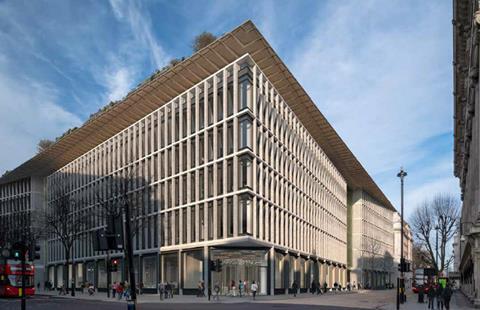Chronic skills gap an obstacle to cutting emissions
Whole-life carbon assessments should be a mandatory requirement for buildings, a parliamentary committee has said.
The Environmental Audit Committee (EAC) has urged the government to embed assessments of emissions involved in the construction, operation, maintenance and demolition of a building into the regulatory and planning system.

According to the committee, the measure would bring the UK into line with other European countries, such as France and the Netherlandsand help the built environment – which is responsible for 25% of the UK’s greenhouse gas emissions – achieve net zero.
It recommended that such assessments be introduced by December 2023 for buildings with a gross internal area of more than 1,000 sq m, or those which create more than 10 dwellings.
Once they are in place, the EAC suggested that government develop carbon ratcheting carbon targets based on the assessments.
Philip Dunne, a Conservative MP and chair of the committee, said: “From homes to offices, retail units to hospitality venues, our buildings have a significant amount of locked-in carbon, which is wasted each time they get knocked down to be rebuilt, a process which produces yet more emissions.”
> Philip Dunne: Government must clarify its net zero expectations
He said ministers needed to address the issue “urgently” and praised Michael Gove, secretary of state for Levelling Up, Housing and Communities for his recent decision to pause the demolition of Marks and Spencer in Oxford Street on environmental grounds.

But the department also came in for criticism from the EAC over planned reforms to permitted development rights, which the committee alleged created an incentive for demolition and new-build over retrofit.
The committee recommended that where retrofit was not possible, contractors should make efficient use of low-carbon building materials such as low-carbon concrete and recycled steel.
The use of timber was also welcomed, though the obstacles to its wider use – appropriate sourcing, enhanced tree planting and a skills gap in construction – were acknowledged.
The dearth of green skills in the UK were identified as a wider problem, including in energy and retrofit. The EAC reiterated its previous recommendation for a strategy to address this.
“As in many other areas in the drive to net zero, the UK must have the green skills to make its low carbon future a reality,” said Dunne, urging the government to publish a retrofit strategy and upskilling programme before the summer recess.
RIBA president Simon Allford backed the committee’s call for more action on embodied carbon.
“This is a vital area where the Government’s policies on sustainability in the built environment have, to date fallen short,” he said. ”I urge the government to adopt the EAC’s recommendations and collaborate with the construction industry, who stand ready to work hard to effectively deliver them.”




























No comments yet